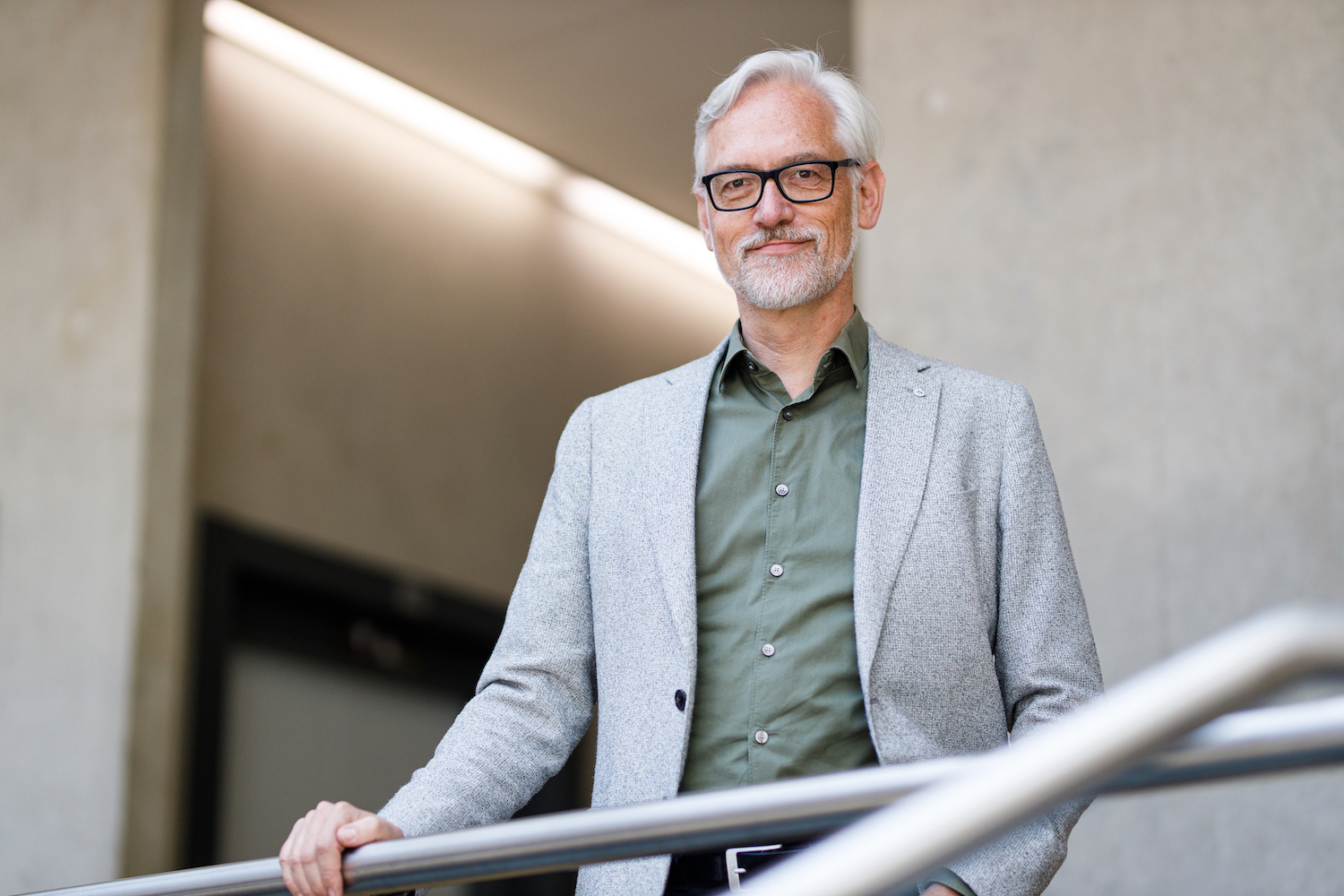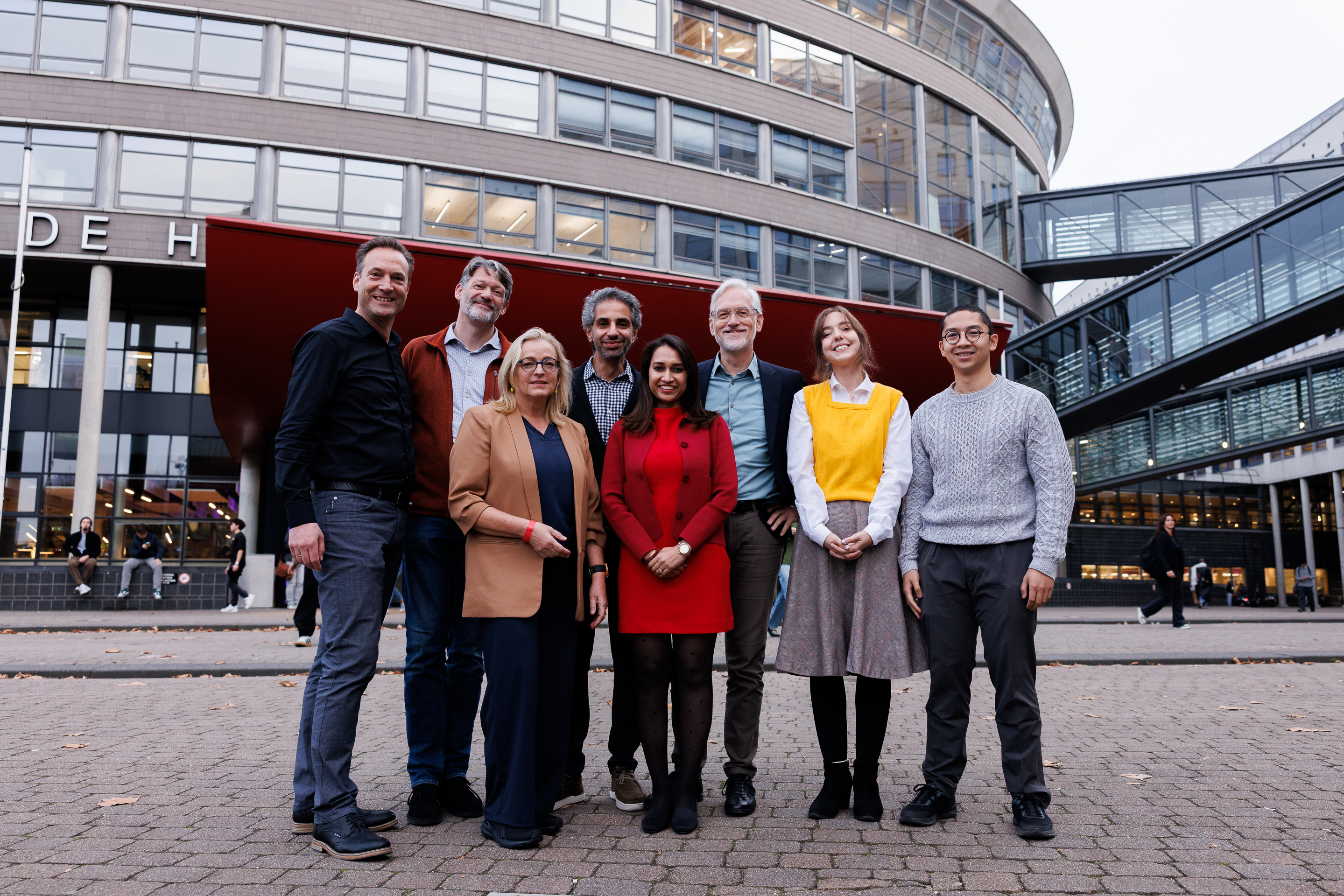Introduction
The Learning Technology & Analytics research group investigates the use of technology in education and study data to improve equal opportunities for students.
About the research group
Study data and technology in education can evoke strong emotions. Some have the image that it will mainly monitor and select students and that this might have a negative impact on them: “Computer says no”. Meanwhile, on the contrary, others are enthusiastic about the potential of data and technology to advance education and students. Both images have a grain of truth, as there is opportunity in both directions. One thing is sure: technology and data already play a crucial role in innovations in education, and – given the rapid pace of technological development – this will only get stronger. With that, the need for research into this topic is growing too.
The research group has two research themes: Learning Technology & Learning Analytics
Within the Learning Technology theme, we use experiments to investigate the interaction between technology, students, and teachers in education. How is technology used, what does it bring, and what does it take away? What makes students, teachers or policymakers not adopt technology in education? What is the potential impact of advanced technologies – such as AI, gaming, virtual or augmented reality – on student teaching and supervision?
In the second theme, Learning Analytics, we examine study data generated in education or its context: data from education systems, education administrations, and public data. What are the statistical relationships in these data? How equal, diverse, and unique are our students within different programmes? We examine not only the data but also the usefulness of insights. What can these analyses mean for teaching, guidance, and education policy? How do educational institutions’ teachers, students, and support staff use data to make decisions?
A particular focus in the second theme is research on students who are – proportionally – underrepresented. What biases exist in study data, and how can we eliminate them? What might education and guidance look like, then? What are the opportunities of different students, and how equal are they? What can we do to improve the equality of opportunities?
Lines of research
A new senior researcher is developing the lines of research in the Learning Technology theme. The Learning Analytics theme of lectorate has four lines of research:
- Learning Analytics: this line focuses on analysing data affecting the quality of learning and teaching. These insights can help to design teaching, learning processes, and study ability.
- Student Analytics: by analysing data at the group level, we can contribute to the quality of programmes with insights into programme design and students’ study paths.
- Institutional Analytics: insights from this line of research can help to set policy and strategy for the entire university, as well as contribute to national, European, and international research.
- Inclusion Analytics: study progression and success of students with support needs is a line of research in which we aim to be meaningful at all levels, as mentioned earlier.
Within each line of research, we focus on a) the selection of relevant study data, b) methods of analysis, c) practical application of solutions, degree of adoption, and impact measurement, and d) communication and dissemination of knowledge.
About the professor
dr. Theo Bakker
Photographer: David Meulenbeld
Theo Bakker has a broad background. He studied Theology, Informatics, and Management Consulting. He obtained his PhD in Clinical Developmental Psychology on the study progress and study success of students with autism.
Since 2004, study data have been the common thread throughout Theo’s career. Initially with implementing educational administrations and later using the information from these systems in the context of study success. He joined the Vrije Universiteit Amsterdam (VU) in 2014 via the University of Amsterdam and Deloitte Consulting. In 2022, he obtained his PhD for his thesis’ Study Progression and Success of Autistic Students in Higher Education, A Longitudinal, Propensity Score-Weighted Population Study’.
In 2021, Theo started at The Hague University of Applied Sciences as director of the Education, Knowledge & Communication department. After his PhD, he combines all his knowledge and experience as a Learning Technology & Analytics professor. In addition, Theo is an Assistant Professor at the VU Faculty of Behavioural and Movement Sciences.

Team
Within our research group, researchers, lecturer-researchers and students work closely with practice partners to conduct research. Together they are committed to translating the results of the research -knowledge and insights- into the practice of education and the region.

Equal opportunities in higher education call for consideration of exceptions






